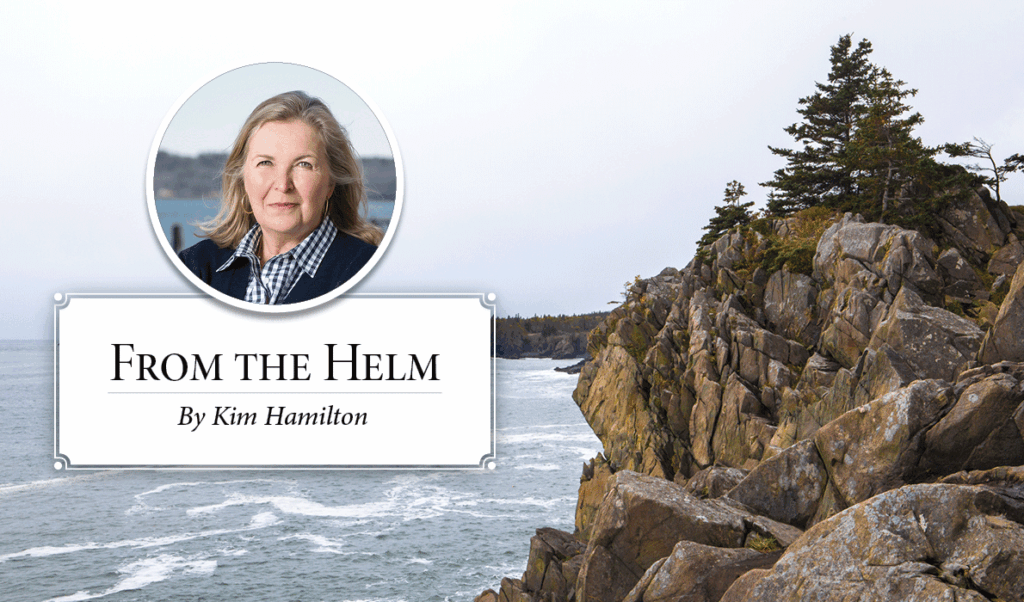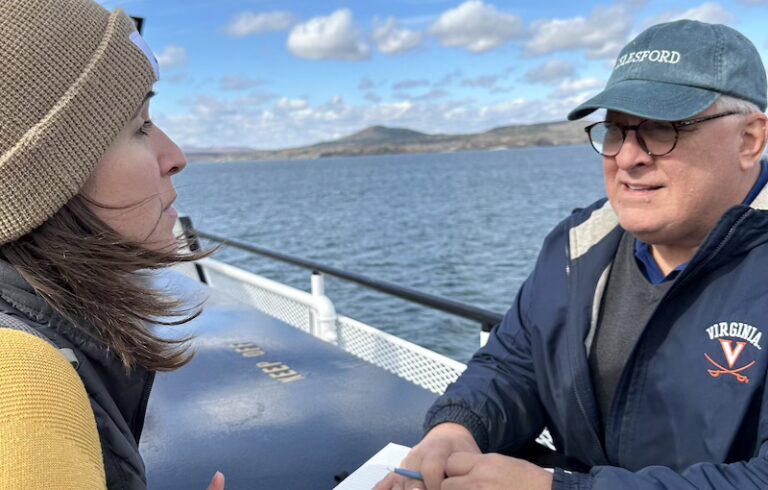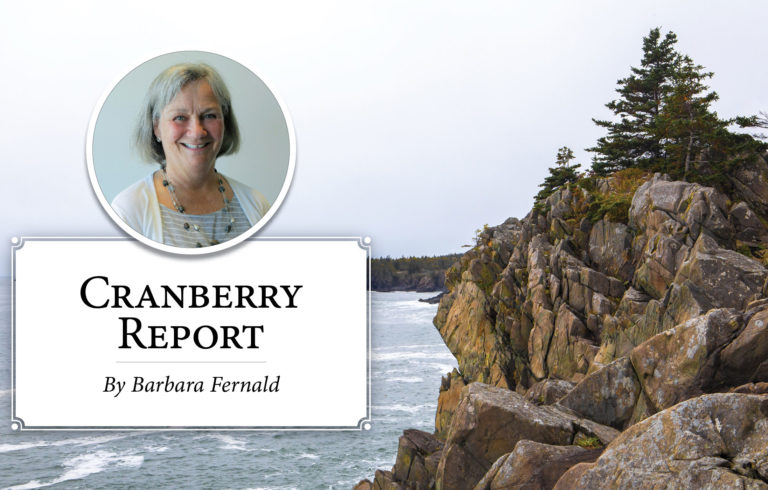My home on Chebeague Island entered a new age last year—we finally connected to high-speed internet. Honestly, it’s so simple now that it’s difficult to remember being on the wrong side of the digital divide, where telehealth, telecommuting, and tele-anything was out of reach.
The opportunities on the other side of that digital divide have long been apparent to Island Institute. With rural, coastal, and island communities already struggling for resources and attention, we knew that broadband offered a pathway for a different future. This is why we tackled the challenge head-on beginning in 2013 when the consequences of exclusion were already in play.
Small businesses could not compete with others that had better, faster connections. Islanders with health issues easily managed through a remote visit faced long commutes and delays. Seniors longing for more frequent community and family connections were especially feeling the brunt. And of especially high concern, young people and young families dependent on reliable, high-speed access could not aspire to work in the community in which they lived.
Our community-driven broadband process provided a model that engaged communities in designing the future they wanted…
There isn’t a one-size-fits-all pattern for high-speed internet in small communities. That’s why we developed an approach as unique as the communities we serve.
Our community-driven broadband process provided a model that engaged communities in designing the future they wanted from broadband. This included assessing the true costs over time, structuring a partnership with a provider, and considering universal access for all community members.
Over the past ten years, we have provided nearly half a million dollars in broadband planning grants to help communities better understand how to move forward. We helped secure more than $50 million in public and private funding to support community initiatives.
Working with partners, we also helped lead a successful $15 million bond campaign—resulting in the largest investment to that date ever made by the state in high-speed internet expansion.
This sort of community-driven work is a true long game. In June, Island Institute joined a community ribbon-cutting ceremony on Isle au Haut to celebrate the completion of a project that has been almost a decade in the making.
This was no small feat. It required laying 6-and-a-half miles of cable from the island itself to Stonington and from there to a central network. It also called on community volunteers who had the staying power and passion for a long game. For this community of 50 year-round residents, broadband became a foundational investment in their future and worth the wait.
Access to broadband isn’t enough, of course. Knowing how to use the new technology is just as important. For example, all commercial lobster license holders are now required to report electronically the location and the amount of their catch every month.
Working in Stonington with the Connectivity Hub and the Maine Center for Coastal Fisheries, we’re helping to train lobstermen on new electronic reporting requirements. In this way, we’re building critical digital literacy skills that turn broadband into the Swiss army knife of community solutions.
Nick Battista, our chief policy and external affairs officer, likes to say, “Never bet against an island community when they want to go big.” Isle au Haut — like Bremen, towns along the Blue Hill Peninsula, Chebeague, and many others —is an extraordinary example of a small community doing big things.
The audacious tenacity that brings these big dreams to life in small communities is the secret sauce we like to invest in. It’s even sweeter when these big dreams become reality and ensure the places we love most can remain a home for generations to come.
Kim Hamilton is president of Island Institute, publisher of The Working Waterfront. She may be contacted at khamilton@islandinstitute.org.





